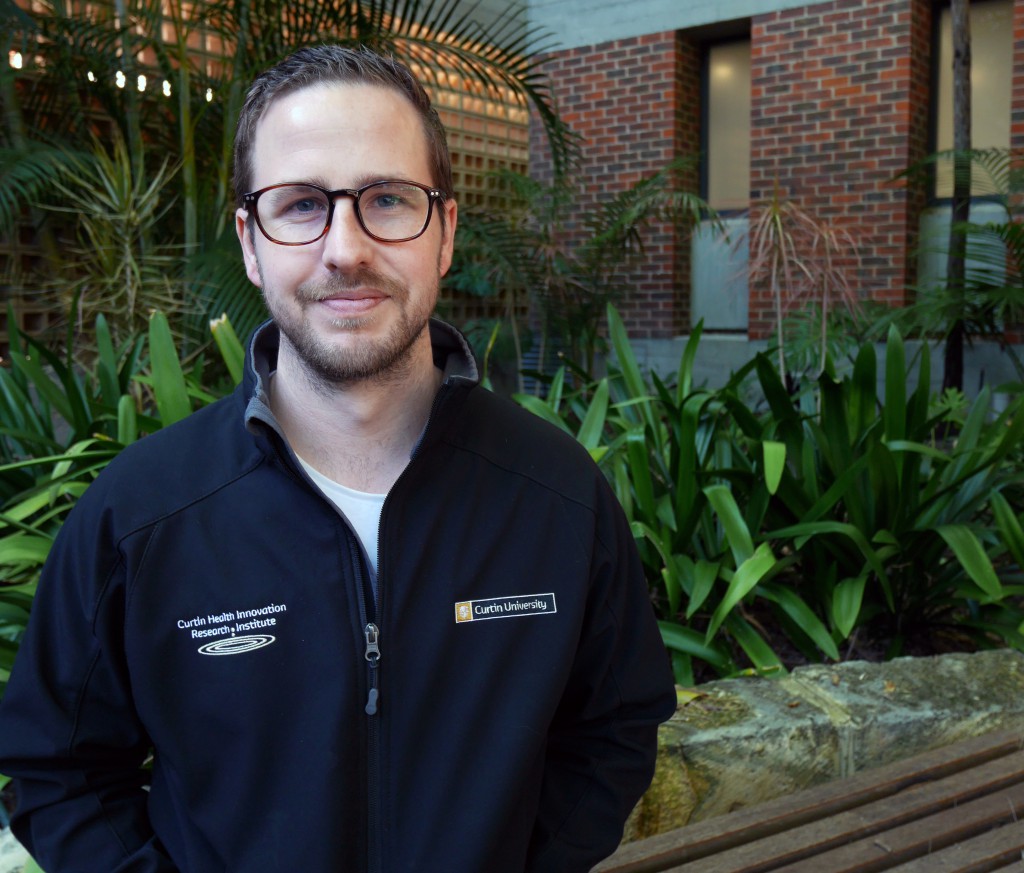As the end of his PhD draws to a close, CHIRI researcher Sebastian Pohl has not only the completion of his thesis to celebrate but also that his three-year labour of love was among Curtin’s best.
Now Dr Sebastian Pohl, following his graduation ceremony last Friday, he received a Chancellor’s commendation for submitting an outstanding thesis. This honour, usually reserved for no more than 10 per cent of PhD students at Curtin, includes a signed commendation letter from the Chancellor and is noted in Sebastian’s academic transcript and graduation statement.
Congratulations also to former CHIRI PhD student Himel Khaleque who also received a Chancellor’s commendation for her thesis.
Chancellor’s commendations are awarded to Masters or doctoral students determined to have submitted an outstanding thesis that is considered to have made a significant contribution to their field of knowledge.
Sebastian completed his PhD under the supervision of CHIRI’s Professor Arunasalam Dharmarajan, from Curtin’s School of Pharmacy and Biomedical Sciences, whose research in cancer signalling, cancer biology and cancer stem cells makes him a fitting mentor for Sebastian’s line of research, which to date has been focused mostly on breast cancer research. Sebastian was co-supervised by Dr Allan Prem Kumar from the Cancer Science Institute in Singapore and CHIRI Early Career Research Fellow, Dr Mark Agostino. Sebastian considers the support of his supervisors, as well as the technical staff at CHIRI, to be contributors to his success.
“Dharma (Professor Dharmarajan) supported independent research and gave me freedom to pursue my ideas as my PhD progressed,” he said.
Sebastian is Professor Dharmarajan’s second student to receive a Chancellor’s commendation this year and has been the primary supervisor of four completed PhDs in the past five years.
Sebastian also received support in the form of a scholarship from Australian Rotary Health, the Rotary Club of Belmont and Curtin’s School of Pharmacy and Biomedical Sciences.
Sebastian’s thesis, titled “Mediation of triple negative breast cancer cell fate via cellular redox and Wnt signalling” looked at an important pathway in the development of many different cancers, and specifically at a particular protein, DDX20, which was found to regulate the Wnt signalling pathway, and is over-expressed in a subset of breast cancers. What’s most exciting about some of the findings of this research is that this cell growth could be directly regulated by a set of enzymes which had not been shown to be controlled by canonical Wnt signalling. This newly-identified mechanism is significant not only to breast cancer but any disease where this dysregulation in reactive oxygen species (ROS) may be a contributing factor.
Unfortunately, Sebastian will be leaving us to take up a postdoctoral position as a Research Fellow at the University of Edinburgh-based Institute for Genetics and Molecular Medicine in September. There, his research will take a new turn, focusing on colorectal stem cells and cancer research.
We wish Sebastian, Himel and all of CHIRI’s new PhD graduates every success on their research journeys:
- Audrey Margery-Muir (supervised by A/Prof. David Groth and Prof. John Wetherall)
- Mohammed Yaro (supervised by A/Prof. David Groth and Dr Kylie Munyard)
- Chee Wai Wong (supervised by Prof. Deirdre Coombe and Dr Danielle Dye)
- Himel Khaleque (Chancellor’s commendation, supervised by Prof. Elizabeth Watkin and Dr Josh Ramsay)
- Sebastian Pohl (Chancellor’s commendation, supervised by Prof. Arunasalam Dharmarajanand Dr Mark Agostino)

